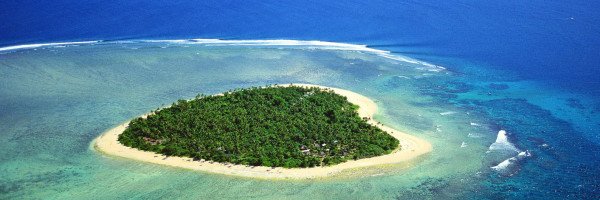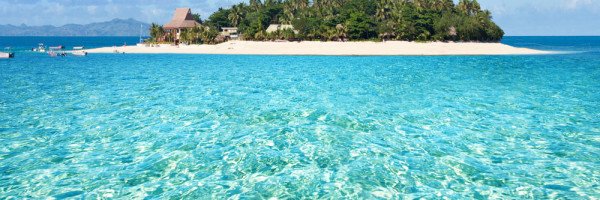Understanding Fiji’s Cyclone Season
Fiji’s cyclone season typically spans from November to April, coinciding with the warmer months in the South Pacific. This period is characterized by increased humidity and the potential for tropical cyclones, which can bring heavy rain, strong winds, and dangerous sea conditions. Tourists from New Zealand should be aware of these weather patterns to ensure their safety while enjoying the beautiful landscapes and vibrant culture of Fiji. Fiji is located in a region that experiences significant weather changes, and the cyclones can form quickly. For instance, a cyclone may develop from a simple low-pressure system and escalate into a severe storm within a few days. It’s crucial for tourists to monitor weather updates and understand the signs of an approaching cyclone. Resources like Fiji Islands provide valuable information on weather forecasts and cyclone alerts. Being informed about the cyclone season not only helps in planning your trip but also ensures that you can enjoy your vacation with peace of mind, knowing you are prepared for any weather-related events.Preparing Your Travel Itinerary
When planning a trip to Fiji during the cyclone season, it is vital to create a flexible travel itinerary. Consider opting for accommodations that have a good track record of safety during severe weather events. Many hotels and resorts in Fiji have protocols in place for cyclone preparedness, including reinforced structures and emergency plans. New Zealand tourists should also plan their activities with the weather in mind. For example, water sports and outdoor excursions are best scheduled for the beginning of your trip, allowing for potential rescheduling if a cyclone warning arises later. Keep an eye on local weather forecasts, and don’t hesitate to adjust your plans if necessary. Additionally, consider travel insurance that covers cancellations due to extreme weather. This can provide peace of mind and financial protection if a cyclone disrupts your travel plans. Resources such as Fiji Islands can offer insights on the best times to visit and current weather conditions, helping you make informed choices.Emergency Preparedness and Communication
In the event of a cyclone, having a communication plan is essential for New Zealand tourists. Before your trip, ensure that your mobile phone is charged, and consider downloading weather apps that provide real-time updates. Familiarize yourself with the emergency contact numbers for local authorities and your accommodation. Additionally, establish a communication plan with friends and family back in New Zealand. Share your itinerary and ensure they know how to reach you in case of an emergency. Many resorts in Fiji have emergency management protocols and staff trained to handle cyclone situations, so don’t hesitate to ask about their safety measures upon arrival. It’s also beneficial to stay connected with local news sources for updates on weather conditions. The official Fiji Islands website often provides timely information about cyclones and safety recommendations.What to Pack for Cyclone Season
Packing appropriately for Fiji’s cyclone season is crucial for New Zealand tourists. Essential items include lightweight, waterproof clothing, sturdy footwear, and a good-quality rain jacket. It’s also wise to bring a portable charger for your electronic devices, as power outages can occur during severe weather. Consider packing a small emergency kit that includes items such as bottled water, non-perishable snacks, a flashlight, and a first aid kit. Having these supplies on hand can make a significant difference during a cyclone. Additionally, sunscreen and insect repellent should be part of your packing list, as the weather can still be hot and humid despite the rain. Familiarizing yourself with the Fiji Islands weather patterns will help you determine the best clothing choices for your trip, ensuring you are comfortable throughout your stay.Staying Safe During a Cyclone
If a cyclone warning is issued while you are in Fiji, it is critical to follow safety instructions from local authorities and your accommodation. Most resorts have designated safe areas where guests can shelter. It’s recommended to stay indoors, avoid windows, and secure outdoor items that could become projectiles in high winds. Stay updated on the cyclone’s progress via local radio broadcasts or mobile apps. In situations where evacuation becomes necessary, follow the guidance of local officials and only move to designated shelters. New Zealand tourists should also be aware of the potential for flooding, especially in low-lying areas. Avoid driving or walking through flooded streets, as this can pose serious risks. For further information on safety protocols and cyclone preparedness, refer to the Fiji Islands official resources.Understanding Local Emergency Services
Fiji has a well-organized disaster management system in place, and understanding how it operates can be beneficial for New Zealand tourists. Familiarize yourself with local emergency services and their contact numbers. The Fiji National Disaster Management Office (NDMO) is responsible for coordinating disaster response and recovery efforts. In case of an emergency, knowing where to find help is crucial. Many resorts in Fiji provide assistance and guidance to guests during cyclones and other emergencies. It is advisable to keep emergency numbers saved on your phone and to communicate your location to friends or family back in New Zealand. Additionally, the Fiji Islands website provides resources on local emergency services and safety tips, ensuring that you are well-prepared for any situation that may arise during your visit.Post-Cyclone Safety and Recovery
Once a cyclone has passed, it is important to assess the situation carefully before venturing outside. Follow local authorities’ guidance regarding when it is safe to leave your accommodation. Check for any potential hazards, such as downed power lines or flooded areas. If you encounter damage or disruptions, report them to local officials or your accommodation. Many resorts will have protocols in place to assist guests in navigating post-cyclone conditions. Additionally, be mindful of the recovery efforts in the local community. Supporting local businesses and participating in recovery initiatives can be a way to give back to the Fijian community. For information on how to help, refer to the Fiji Islands site, which often highlights recovery efforts and ways tourists can contribute.FAQs
What is Fiji’s cyclone season?
Fiji’s cyclone season typically runs from November to April, coinciding with the warmer months when weather patterns can lead to the formation of tropical cyclones. During this period, tourists should stay informed about weather updates and potential cyclone warnings.
How can I stay updated on Fiji’s weather patterns during my visit?
To stay informed about Fiji’s weather patterns, you can check local news outlets, the Fiji Meteorological Service website, or follow relevant social media accounts. Many hotels and resorts also provide weather updates and safety information for their guests.
What safety precautions should I take when traveling to Fiji during cyclone season?
When traveling to Fiji during cyclone season, it’s essential to have a safety plan in place. This includes knowing the emergency contact numbers, identifying safe locations to stay, and having an emergency kit with essentials like food, water, and medical supplies.
Are there specific areas in Fiji that are safer during cyclone season?
While no area in Fiji is entirely immune to cyclones, regions such as Viti Levu and the Mamanuca Islands may experience less severe weather due to their geographical features. However, it’s always best to stay updated on specific weather forecasts for each area.
What should I do if a cyclone warning is issued while I’m in Fiji?
If a cyclone warning is issued, follow the advice of local authorities and your accommodation staff. This may include moving to a designated evacuation center or staying in your hotel until the storm passes. Always have a communication plan in place with family or friends back home.
Can I still enjoy outdoor activities during cyclone season?
While outdoor activities can be enjoyable during Fiji’s cyclone season, it’s crucial to monitor weather patterns closely. On days with clear weather, you can partake in activities like snorkeling or hiking, but avoid planning excursions during storm warnings.
How can I prepare for potential disruptions to my travel plans due to a cyclone?
To prepare for potential disruptions, consider purchasing travel insurance that covers weather-related cancellations. Additionally, maintain flexible travel plans, and keep an eye on airline and accommodation policies regarding changes due to severe weather conditions.
References
- Fiji Islands Official Tourism Website – A comprehensive resource for travelers, providing essential information about visiting Fiji, including safety tips during cyclone season.
- Fiji Meteorological Service – The official weather authority in Fiji, offering updates on weather conditions, cyclone alerts, and safety information for tourists.
- New Zealand Cyclone Preparedness – A resource from the New Zealand government that outlines how to prepare for cyclones, including advice for travelers heading to affected regions.
- Smart Traveller – Travel Advice for Fiji – The Australian government’s travel advisory site that provides safety tips and updates regarding natural disasters, including cyclones in Fiji.
- New Zealand Red Cross – Emergency Preparedness – Offers guidance on how to prepare for emergencies, including natural disasters like cyclones, with resources that can be useful for tourists in Fiji.







